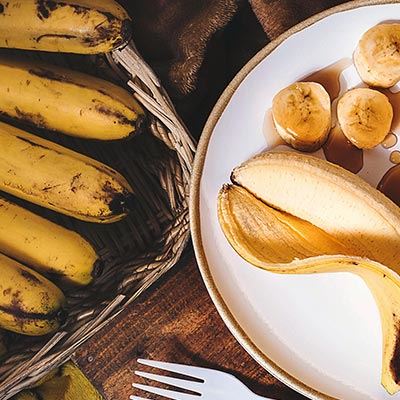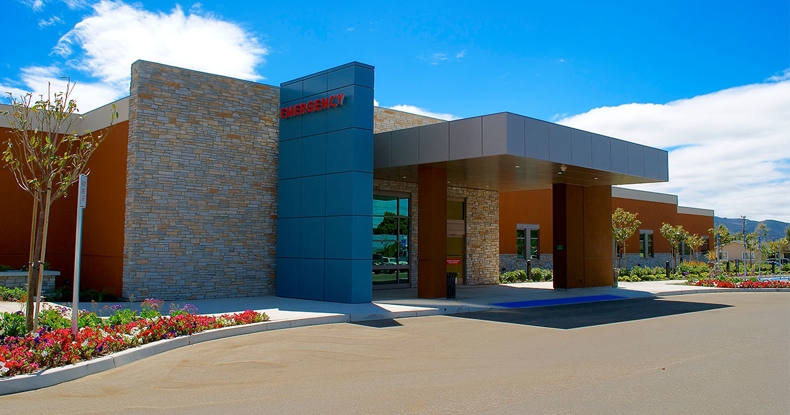Nutritional Recommendations for Seniors
- Category: Health & Wellness, Nutrition
- Posted On:
- Written By: LVMC

Seniors who increase their intake of certain vitamins and nutrients can boost their energy and reduce their risk for chronic conditions.
Seniors are often more susceptible to nutritional deficiencies than other age groups on behalf of reduced appetite, diminished ability to absorb nutrients, and health conditions like dementia and chronic pain, making it difficult to prepare meals. Healthy foods loaded with vitamins and nutrients can help seniors boost and maintain their energy levels and strengthen their immune systems to reduce their risk for worsened health and disease.
Read on to learn more about nutritional recommendations for seniors and about how Lompoc Valley Medical Center can work with you to improve your diet and overall health.
.jpg)
Calcium and Vitamin D
Older adults are at higher risk for bone loss and osteoporosis than their younger counterparts. They can benefit from higher amounts of calcium and vitamin D in their diets to strengthen and maintain bone health. Sources of calcium and vitamin D include dark leafy greens (e.g., kale, Bok choy, spinach), fortified cereals and juices, fatty fish (e.g., salmon, tuna, mackerel), and milk.
Adults should consume no more than 1,200 mg of calcium every day, while seniors aged 70 years and older should consume between 600 and 1,000 IU of vitamin D per day. Calcium and vitamin D supplements can also help you meet your daily allowance of these nutrients if you cannot get them through diet alone. Lastly, when possible, spend more time outdoors in the sun, which can increase your vitamin D levels.

Healthy Fats
Unsaturated fats and omega-3 fatty acids offer a wide range of health benefits—particularly for your heart and brain. Healthy fats are shown to reduce cholesterol and blood pressure and improve your mood to ward off symptoms of anxiety and depression. Healthy fats can be found in avocados, fatty fish, eggs, olive oil, and nuts, including walnuts, almonds, and cashews. Generally, monounsaturated fats should make up 15% to 20% of your diet every day, while polyunsaturated fats should make up 5% to 10% of your diet every day.
High-Quality Protein
Protein boosts your metabolism, increases energy levels, improves cognition, and reduces anxiety and depression — but only high-quality proteins such as fish, beans, poultry, grass-fed beef, eggs, and seeds. Omit processed meat products from your diets such as bacon, hot dogs, bologna, and sausage, as these foods are loaded with toxins and free radicals that increase the risk for chronic diseases like cancer and heart disease. Aim to consume about 0.8 grams of protein per kilogram of body weight per day, which equates to roughly 2.3 ounces if you weigh 180 pounds. If you are aged 65 years or older, consider eating slightly more protein than the recommended amount to maintain your energy levels.

Dietary Fiber
Eating fiber-rich foods can help your bowel movements stay regular, which is important for avoiding discomfort related to constipation and diarrhea. Regular bowel movements also help flush waste and toxins from your system that contribute to serious conditions, including heart disease and colon cancer. Other benefits of eating lots of dietary fiber include better skin health, weight loss, and a reduced risk of stroke and diabetes.
The recommended fiber intake for men and women aged 50 years and older is 30 grams per day and 21 grams per day, respectively. Fiber-rich foods to include in your diet are fruits, vegetables, beans, nuts, seeds, and whole-grain cereals, pasta, and bread.

Vitamin B12
Many older adults experience problems with fully absorbing vitamin B12 on behalf of less gastric acid production. Hydrochloric acid in the stomach works to separate vitamin B12 from the proteins it attaches to in food, necessary for the body to absorb it properly.
Older adults should take vitamin B12 supplements or increase their intake of foods that contain this essential vitamin. The recommended daily allowance of vitamin B12 for adults is 2.4 micrograms. Foods high in vitamin B12 include beef liver, fish, poultry, eggs, and milk. Some healthcare providers also offer vitamin B12 shots, which can help you maintain adequate B12 levels for up to three months.

Potassium
Potassium is highly beneficial for older adults because it can reduce blood pressure and reduce your risk of stroke, osteoporosis, and kidney stones. Potassium can also reduce the water retention that can occur on behalf of sitting for long periods, being overweight, using certain medications, and having certain underlying health problems.
The recommended daily amount of potassium for adults is between 3,500 to 4,700 mg. Examples of potassium-rich foods you can add to your diet include bananas, spinach, sweet potatoes, salmon, mushrooms, and cantaloupe.

Water
Seniors are often more predisposed to dehydration on behalf of factors including the reduced perception of thirst and should aim to drink water more frequently throughout the day, even if not necessarily thirsty. Common signs of dehydration include dark, strong odorous urine, dizziness, tiredness, and dry mouth. Feeling hungry even though you recently ate is another potential sign of thirst and dehydration.
Water offers a wide range of benefits for your overall health, including regular bowel movements, improved digestion, and normalized blood pressure and heartbeat. Try to sip on water regularly throughout the day and replace beverages like sugary fruit juices, coffee, and alcohol with water.
Senior Nutrition Services with Lompoc Valley Medical Center
Lompoc Valley Medical Center offers an array of nutrition services for people of all ages —including seniors. We offer outpatient dietitian services, weight loss programs, and more for people who want to improve their overall health with better nutrition. Visit our provider page to make an appointment with one of our specialists who can help you develop a healthy meal plan.






